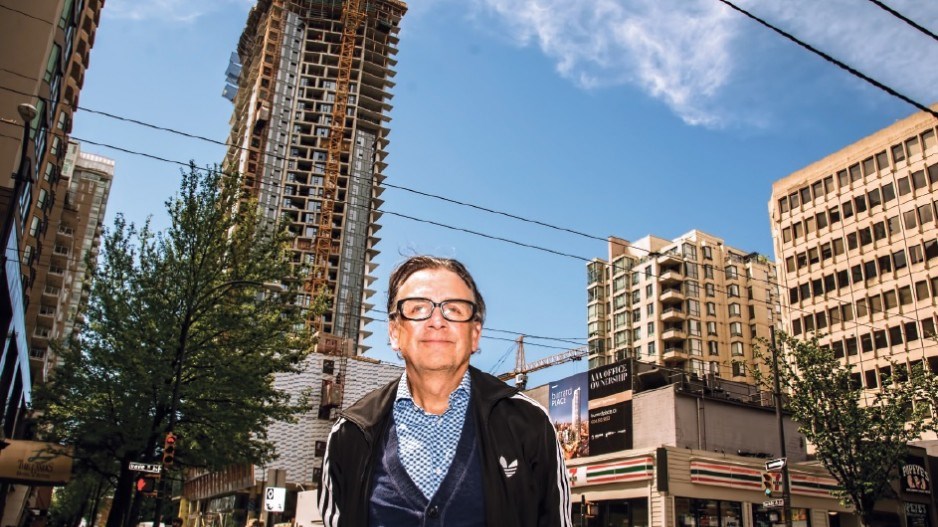Real estate investors and developers are eyeing a future where homeowners demand home offices and larger balconies as a result of habits formed during the COVID-19 pandemic.
The challenge for developers is how to build those units while still abiding by municipal regulations; the challenge for buyers who want to have a home office is that it adds square footage and cost to the property.
Developers such as Reliance Properties have in the past decade made extra efforts to add sliding doors, in-wall beds and other innovations to maximize space.
“Everyone would like a bigger place, and everyone would like a den and a home office, but, at the end of the day, affordability and the fact that units are denominated and costed by size, will mean that not everyone can get that,” Reliance CEO Jon Stovell told Business in Vancouver.
One way to include a home office in a condo design, therefore, is use slidable walls to hive off part of a larger room.
But Stovell said that, because City of Vancouver regulations set out a required percentage of two- and three-bedroom units in many projects, installing a sliding door or divider instead of a solid wall between two bedrooms would result in the city counting it as one large room not two.
Stovell has also been lobbying the city to allow condos to have small windowless rooms that could be used as workspaces.
City regulations stipulate that all bedrooms have windows. Stovell said the city will not allow large windowless closets because of a fear that they could be turned into bedrooms.
Asked if it would work with developers to provide more home offices, the city said in a statement that “this is an opportune time to advance strategies to support work from home.”
Large balconies are also likely to be more in demand if people want home offices.
The city restricts balconies to be a maximum of about 8% of a unit’s size, Stovell said. It also includes the square footage of larger balconies in a unit’s size.
Stovell wants to be able to build larger balconies and not have that space counted as part of the total floor-space ratio that developers are allowed to build on a project.
“The balcony has become oh so precious, even in adverse weather conditions because, for a lot of people, there is no other way to get fresh air,” he said.
Common areas in future condominium developments are also likely to change with people’s increased concern about touching surfaces.
So doors that open automatically and do not need to be pushed are likely to become the norm. Stovell said facial-recognition cameras to open garbage room doors could also become commonplace.
“You will be able to get in your elevator and say ‘Level 9’ and not have to push a button,” he said.
While Stovell has been working to make smaller homes as comfortable as possible, the Real Estate Investment Network (REIN) has long advocated that its members buy larger units instead of micro-suites.
Millennials will likely soon want to have children and move to larger spaces, said Jennifer Hunt, REIN’s vice-president of research and a real-estate investor.
The pandemic has “amplified” REIN’s advice, because many workers who never worked at home have been forced to adopt that lifestyle option, she said.
Hunt expects a growing demand for condominiums that have home offices.
“We always skew to a larger size unit,” added Beedie Living’s executive vice-president Houtan Rafii.
If competitors are building 550-square-foot, one-bedroom units in a neighbourhood, he said Beedie Living will likely build some that are 625 square feet to ensure that niche is filled.
Rafii added that homes used to be built with small alcoves that included built-in tables large enough for computers.
The alcoves fell out of favour when technology enabled people to more easily move around with their laptops, and Rafii thinks that they could make a comeback.
“I wouldn’t be surprised if we see a trend moving back to homes with dedicated work stations," he said •




